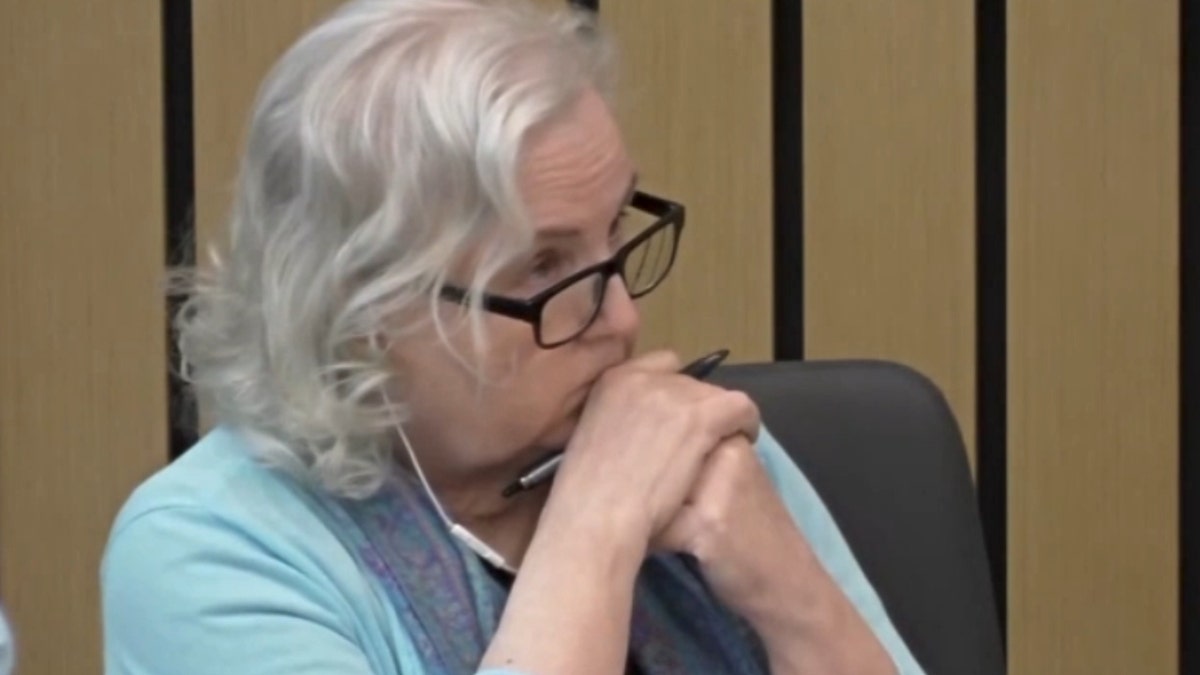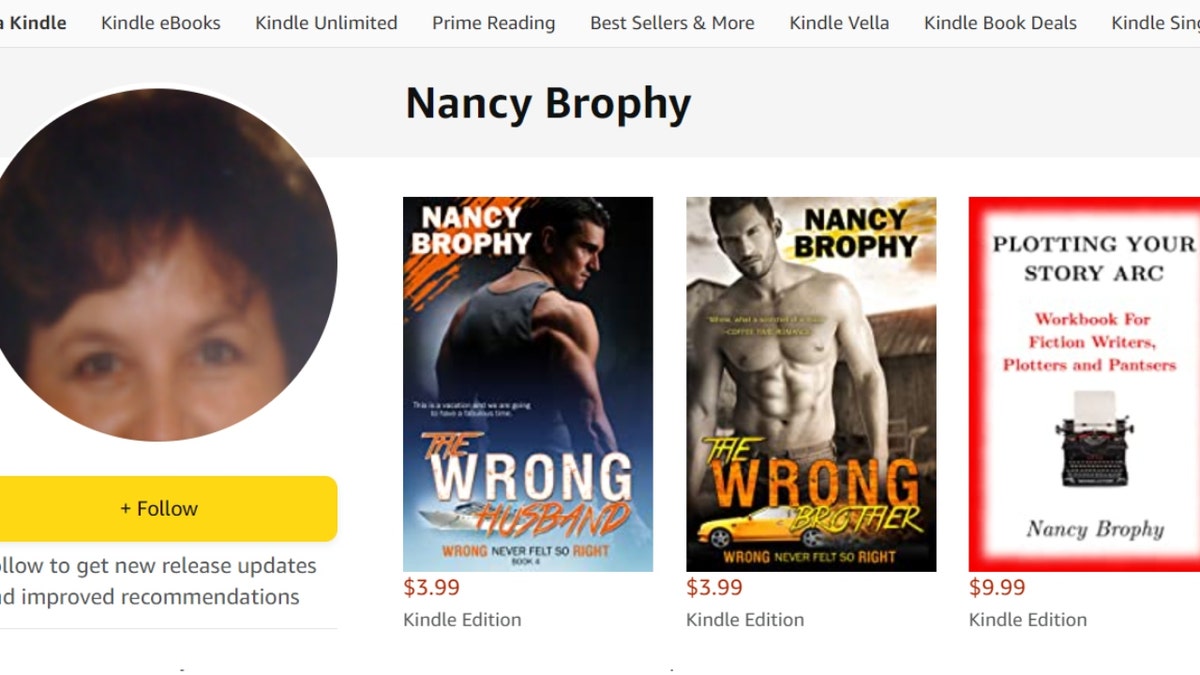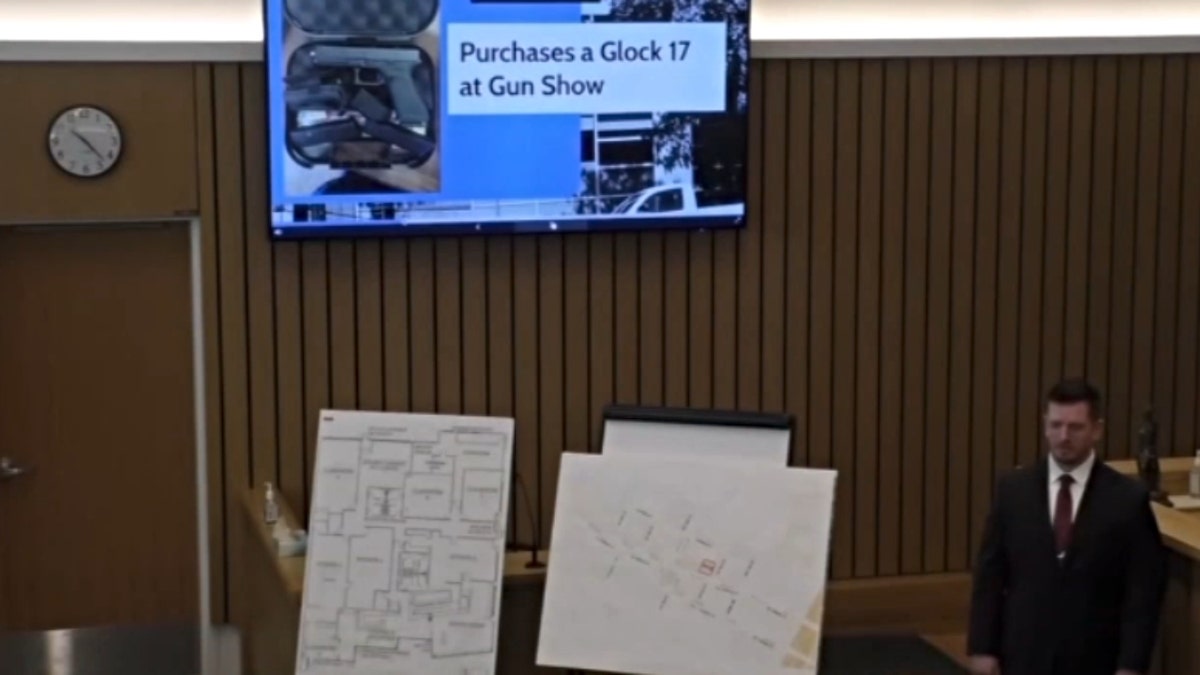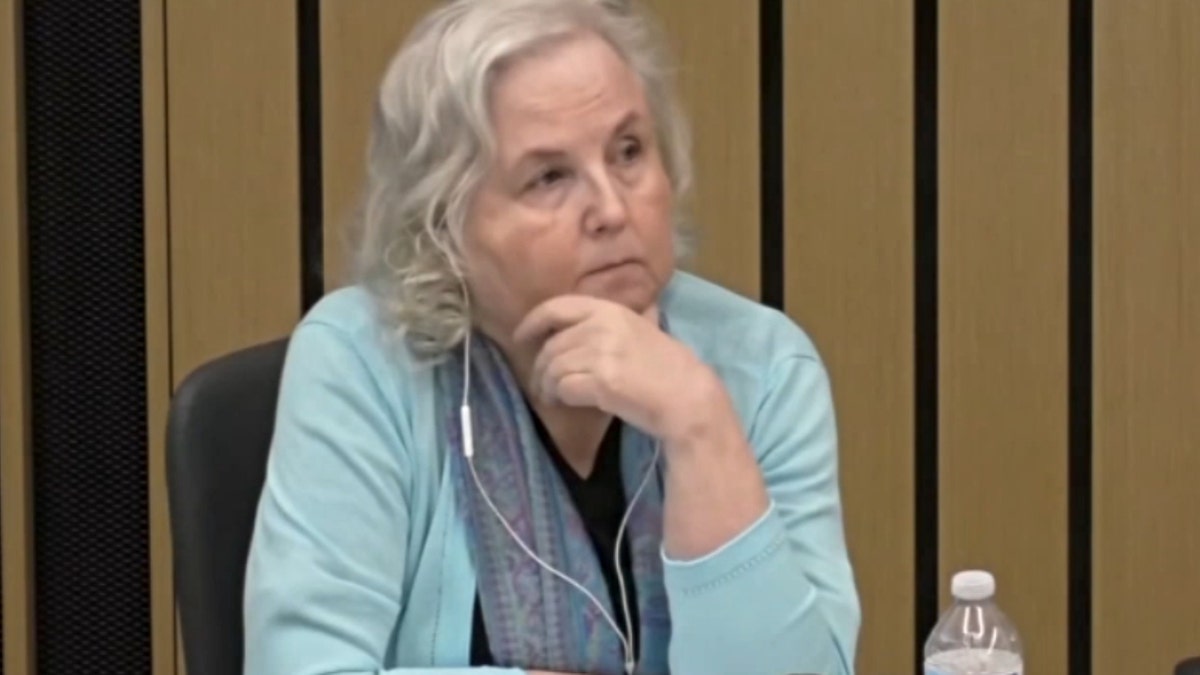Romance novelist on trail for real-life murder in Oregon
Romance novelist Nancy Crampton-Brophy, author of the online essay, "How to Murder Your Husband,' appeared in an Oregon courtroom Monday for her murder trial.
Romance novelist Nancy Crampton-Brophy, author of the online essay, "How to Murder Your Husband," appeared in an Oregon courtroom Monday for her murder trial.
Multnomah County District Attorney Rod Underhill charged Brophy, 71, with one count of murder with a firearm in September 2018, but her trial has been delayed due to COVID-19, court documents show.

Nancy Crampton-Brophy appears in an Oregon courtroom for her murder trial. (KPTV/ pool camera)
An indictment alleges that in June 2018, Brophy "did unlawfully and intentionally cause the death of" her now-deceased husband, Daniel Brophy, using a 9 mm pistol. Daniel Brophy was fatally shot at the Oregon Culinary Institute (OCI), where he worked, on June 2, 2018, when the Portland Police Bureau initially opened an investigation into the case.
Circuit Judge Christopher Ramras also rule that prosecutors could not use Brophy's "How to Murder Your Husband" essay, which lists motives for murdering one's husband, as evidence in the trial. Brophy's other works include "The Wrong Series," including books "The Wrong Cop," "The Wrong Husband," "The Wrong Seal," "The Wrong Lover," "The Wrong Hero" and other titles such as "The Girl Most Likely To."

Nancy Crampton-Brophy's Amazon author page. (Amazon screenshot)
An affidavit alleges that security footage from that day shows Nancy driving in front of the OCI building at 7:08 a.m., before Daniel arrived. The footage then apparently shows her leaving the OCI building shortly after Daniel's arrival at 7:28 a.m. Daniel's coworker entered the building shortly afterward but did not discover Daniel's body in one of the school's kitchens until 8 a.m.
FBI REOPENS MISSOURI COLD CASE MURDER OF 26-YEAR-OLD DIANA AULT
Detectives interviewed Nancy after Daniel's death, and she allegedly told them that she had been home the morning of June 2 and left only after getting a call from OCI. She apparently said she had previously bought a 9 mm handgun but never used it, the affidavit says.

Prosecutors present firearm evidence during the Nancy Crampton-Brophy trial. (KPTV/ pool camera)
In opening statements on Monday, however, the defense said Nancy was at a Starbucks in Washington County when her husband was shot.
The defense also presented loving messages shared between Nancy and her husband to prove that the couple was on good terms before Daniel's shooting.
PHILADELPHIA MAN KILLED IN GAS STATION SHOOTING SURVIVED GUNFIRE WEEKS EARLIER
Court documents further allege that Nancy called detectives in June requesting a letter stating she was not a suspect in her husband's homicide to provide to her life insurance company because she had a policy for Daniel valued around $40,000. Prosecutors also claimed that following her husband's death, Nancy made claims on 10 life insurance policies valued around $1.4 million for which she was the beneficiary, according to FOX 12 Portland.

Nancy Crampton-Brophy appears in an Oregon courtroom for her murder trial. (KPTV/ pool)
The prosecution further alleged that the Brophies began to struggle financially in 2016, and Nancy began researching ghost guns in 2017. She then apparently spent $15,000 on a ghost gun and parts in 2017, FOX 12 reported, citing prosecutors.
The first witness to testify Monday was Maxine Borcherding, a friend of the Brophies, who said Nancy also "defended" her husband when asked about him, KOIN reported.
CLICK HERE TO GET THE FOX NEWS APP
She also told the court that he had a reputation of being "harsh" with students if he was not happy with their work.
"Dan was an incredibly knowledgeable instructor in many, many areas. If he thought a student worthy of his time and attention, he was the best instructor and mentor that a student could ask for. But if for whatever reason, he was not happy with the students, he could be pretty harsh," Borcherding testified, according to the outlet.


